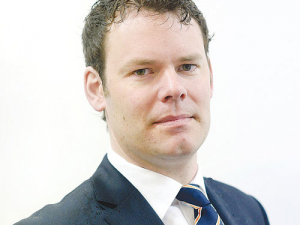Growing more lambs in the shoulder season is among proposals for maximising the value of New Zealand lamb in a new report from Rabobank.
Animal proteins analyst Blake Holgate says there is likely an oversupply of product during some months of the year, while supply is unable to meet demand in other months.
Farmers who are prepared to produce lambs in the shoulders of the season have an opportunity to capitalise on the increased export of higher-value chilled meat products during the off-peak times. In 2016, the average value of chilled lamb exports was $11,697/tonne versus $6096/t for frozen lamb exports.
Holgate told Rural News there is a lot of rhetoric these days about value-add. The report, released late last week, headed ‘Maximising the Value of NZ Lamb’, was produced to provide a better understanding of how to add value to lamb, what is involved and the roles different industry players have.
He says the value-add journey has started and will continue and farmers need to understand better how they can engage.
Farmers can discuss with their processor what products or strategies they have or are developing and whether they can align themselves with those products.
Whether it is current products, something on the horizon or general strategy, farmers can look at how they align their farming systems and adjust to the future. Producing more lambs in the shoulder season is just one proposal.
Firstly, farmers can start to work with processors and discuss incentives to meet the higher costs of changing systems.
“Secondly [farmers need to] understand accreditation schemes and traceability requirements; if we want to add value we need to get those nailed,” Holgate says.
“Farmers need to buy into some of those schemes, get their house in order and be proactive on that front.”
Consistency of product quality is important “to ensure our consumers around the world are getting the same eating experience every time they go into a restaurant or supermarket.
“If we want to [sell] premium product and expect people to pay a lot more for it, we don’t want them to go in there, try it, have a bad experience and not come back.
“So we must ensure our farming systems and measurements meet quality at the processing stage, or relay information up and down the chain to ensure we can move towards a more consistent product.”











